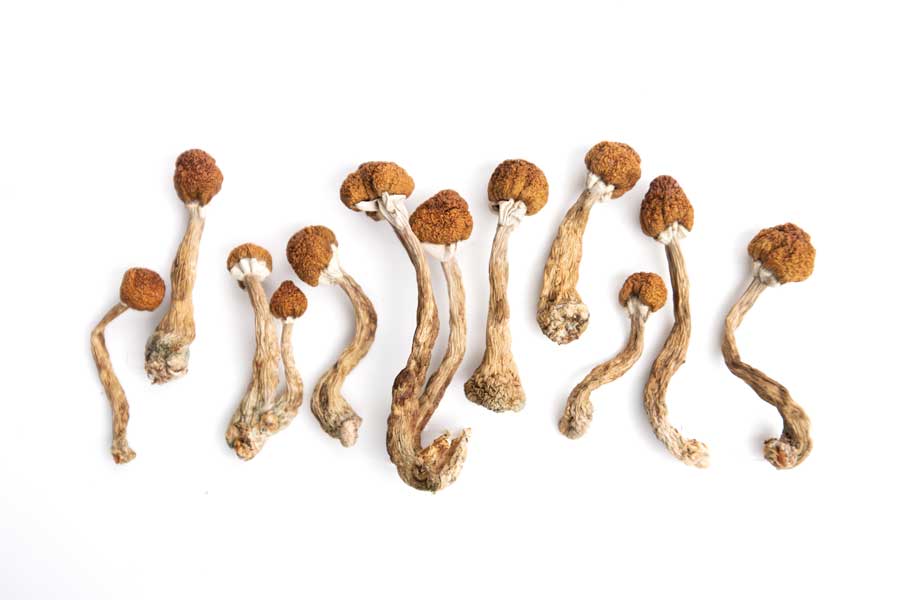Pa. Could Legalize Psychedelics Much More Quickly Than it Did Marijuana
It took half a century to get from decriminalizing marijuana in America to legalizing it. The journey to legalized psychedelics — even in, yes, Pennsylvania — could be much shorter, thanks to a couple of lawmakers from the Philly ’burbs and a lawyer from Lower Merion.

Pennsylvania could legalize psychedelics for medical use, like these magic mushrooms, more quickly than it did medical marijuana. Yarygin / Getty images
When Oregon voters legalized the supervised therapeutic use of psilocybin, a.k.a. ’shrooms, in 2020, it was surprising but not, like, that surprising, considering Oregon was the first state to decriminalize marijuana possession, way back in 1973.
But when conservative Texas governor Greg Abbott signed into law last year legislation to allow study on the use of said mushrooms as a treatment for PTSD in combat veterans, that was a surprise. The move got a lot of people’s attention, particularly those in Pennsylvania who’ve hoped we might consider a similar path.
That’s the political landscape into which a couple of legislators from the Philly ’burbs — state Reps Tracy Pennycuick (R-Montco) and Jennifer O’Mara (D-Delco) — introduced House Bill 1959 to the legislature in October. Their Public Health Benefits of Psilocybin Act would allow research in Pennsylvania into the use of the substance to treat any number of mental health diagnoses — from PTSD and suicidal ideation to eating and substance-abuse disorders — with priority given to research with veterans and retired first responders.
O’Mara’s husband, Bradford Bitting, served two combat tours in Afghanistan, earning two Purple Hearts, and suffers from PTSD; her father, Joe, a former Marine and Philadelphia firefighter, died by suicide in 2003. Pennycuick (pronounced “Penny-cook”) did three combat tours as an Army helicopter pilot. During one of those tours, she found herself trapped in a burning vehicle after an IED explosion. “It didn’t hit me until five or six years later,” she recalls of her own struggles with PTSD. “In the quiet of retirement, it all came crashing down.” Psilocybin could provide relief for veterans like her. “I’m hoping to be patient number one,” Pennycuick says of potential mushroom trials.
Aiding the duo in crafting their bill was Lower Merion native Brett Waters, who runs a nonprofit, Reason for Hope, that advocates for psychedelic-assisted mental health therapy. In college, Waters, now an attorney at Winston & Strawn in New York City, found relief through psychedelics for his adult restrictive food intake disorder. He wonders if they could have helped his mother and grandfather, both of whom died by suicide. He sees the bill’s bipartisan support — 20 legislators, split evenly between parties, signed on to co-sponsor — as reason for cautious optimism that the state’s slow-walk toward medical marijuana won’t repeat with psychedelics. “A lot of people, not just legislators, know someone who’s suffering from depression, opioid addiction,” says Waters. “We want to get them access to what appears to be the best option we have to treat some of those things.” At present, he says, lots of people are forced to venture out of the country to seek relief.
O’Mara and Pennycuick had hoped their bill would pass out of committee in November, but it ended up being tabled, at least until January, for what Pennycuick characterizes as small “technical changes.”
The setback makes it fair to wonder what a realistic timeline might be for seeing mushrooms legalized medicinally in Pennsylvania. This is a state, after all, whose legislature has a long history of, let’s say, extremely puritanical positions on intoxicants, from alcohol to weed.
A factor in Pennsylvania and New Jersey is our reliance on the legislature to change laws, says Paul Armentano, deputy director of NORML, a marijuana advocacy organization. Other states allow citizen-led referenda onto the ballot, but not this one. “The current political makeup of the Pennsylvania legislature,” says Armentano, “makes the likelihood of such legislation passing in the immediate future all but an impossibility.”
But given the bipartisan support for the Pennsylvania bill, Waters believes 2024/2025 — if things break right — isn’t an unreasonable goalpost for seeing medical psychedelics legalized here. In other words, a short, strange trip might not be too much to hope for.
Published as “A Short, Strange Trip” in the January 2022 issue of Philadelphia magazine.


